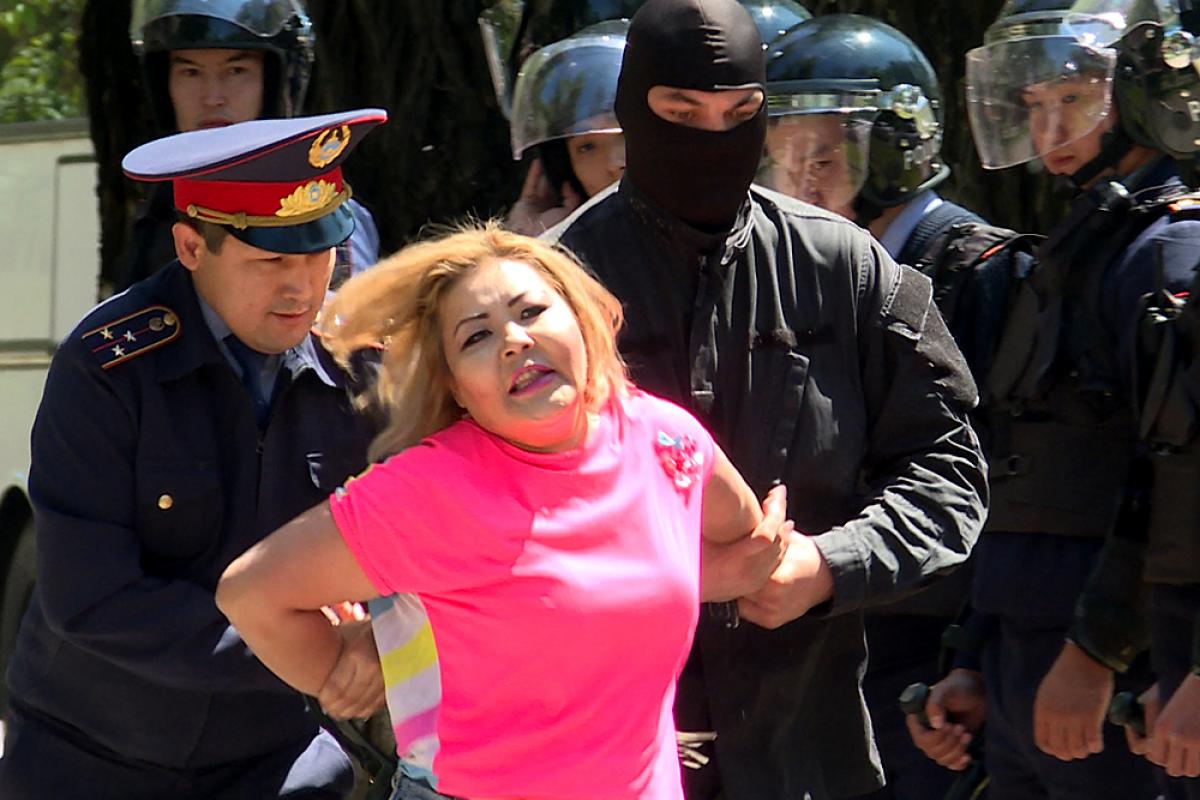Kazakhstan mourns the death of Denis Ten, an Olympic bronze medalist in figure skating. Ten died after two men stabbed him in Almaty as they were trying to rob his car. He was a world-known champion whose life was cut short at just 25 years old.
For a nation that is striving to join the ranks of the most developed counties and prides itself on its success in international sports competitions, the killing of the young champion came as a shock. Online social media discussions have been flooded with expressions of anxiety about random attacks in otherwise prosperous cityscapes, as well as soul-searching regarding what this gruesome violence says about life in Kazakhstan today.

The attack has also renewed public discussion of the type of police Kazakhstani society needs to prevent violent crimes. Pundits have asked whether it is time for long-time Minister of the Interior Kalmuhanbet Kasymov to leave his post. Serik Kedebayev, head of the Almaty police department, is also widely blamed for allowing such crimes to take place. Others have demanded that the Interior Ministry be stripped of its wide-ranging civilian functions, such as issuing IDs, controlling detention facilities, and running the National Guard.
All in all, the tragic death of a young athlete has provoked a widespread conversation on ways of reforming the police, similar to that which occurred following the massacre of protesters from a local mine in Zhanaozen in December 2011.
Since Zhanaozen, the government’s tendency has been toward securitization of public spaces, expansion of surveillance in both urban and rural areas, and increasing the number of police personnel. Inspired by the Western concept of “broken windows” policing theory, first popularized by the New York Police Department in the mid-1990s, Astana applied this theory to Kazakhstan’s reality. The premise is simple: police officers are dispatched to city streets to crack down on a range of minor infractions—littering and loitering, panhandling and public drunkenness—before they become major problems. Essentially aimed at enforcing all laws at all times, such zero-tolerance policing looks to find easy policy solutions to complex social problems.
Critics of zero-tolerance policing argue that such proactive measures can change some behavior but will not address the causes of violence, which are rooted in social marginalization and division between the emerging urban middle class and internal migration from rural areas to large cities. In Kazakhstan’s largest cities, the introduction of Western-style “broken windows” policing asymmetrically targets more recent urban dwellers, who are more likely to use public transport and commute by foot and thus have more exposure to police in public spaces. More long-term urban residents, by contrast, are able to use private vehicles and live in affluent neighborhoods.
Beyond Kazakhstan, the securitization of public spaces has been especially popular in developing countries embarking on neoliberal economic policies, where it has resulted in sharper social contrasts between the wealthier middle class and marginalized populations in the same urban spaces.
A Window of Opportunity
With public attention on the inefficiency of the Interior Ministry, Kazakhstan is now presented with a unique chance to engage in a nation-wide conversation on the type of policing necessary for its changing socio-economic landscape. When so many members of the public feel compelled to help change policing for the better, a window of opportunity opens for deep and lasting transformations.
An in-depth public discussion needs to take place on the type of police needed to protect both famous and regular people, women, children and minorities, independent of their wealth and status. To do this, a range of voices need to be brought to the table, including representatives of the internal migrant and repatriated population, as well as politically active individuals, who are the most likely to be overpoliced.
The process of public discussion and a search for consensus will be lengthy and messy, at times resembling dysfunctional chaos. But any ensuing change is likely to be lasting and move the Interior Ministry away from its Soviet legacies of punitive policing. Most importantly, a public discussion can create venues for state-society collaboration and inclusive change in the future. It may increase public trust in the police and produce a sense of ownership over public order.

Kazakhstan’s various civic organizations and activists have already been developing notions about what type of police would be best able to protect safety. They all need to find a public outlet beyond the online social media that have traditionally been the main forum for free discussion in the country. Such discussions can take place in organized face-to-face forums and be moderated away from critiquing the political establishment toward finding actionable solutions.
The calls for police reform found in the media and online social networks reflect similar processes taking place across the post-Soviet region in three main ways.
Firstly, the primary goal of police reform must be increasing the Interior Ministry’s accountability to civilian institutions and supporting everyday safety, as opposed to controlling the population. Myriad different civil society organizations in Ukraine, for example, demanded that the police become a more transparent and depoliticized force in the aftermath of the 2014 Euromaidan revolution.
Secondly, the overall demand is to reduce the militarization of the Interior Ministry by moving military units to the ministries of defense and emergencies. Similar debates took place in Ukraine and Georgia during meaningful public discussions of police reform.
Thirdly, most activists in the post-Soviet space demand that the interior ministry’s civilian functions, such as issuing IDs and controlling detention centers, be transferred to other government agencies. These demands are frequently put forward across the post-Soviet space, but have been implemented only in Georgia and Kyrgyzstan—and even there only partially.
Author

Erica Marat
Erica Marat is a professor at the National Defense University and author of The Politics of Police Reform: Society against the State in Post-Soviet Countries (Oxford, 2018).
In sum, police reform in Kazakhstan and beyond needs to be about establishing new limits on police functions and legitimate means of violence, as opposed to fighting corruption or modernizing its materiel base, as reform-oriented political leaders often claim.
Importantly, Kazakhstan must move away from its controversial zero-tolerance policing in urban areas and open up to greater public input. This will help Kazakhstan to transform its police from being a proactive force that is likely to alienate already marginalized groups to serving as a reactive public security function by rapidly responding to people’s everyday needs.
The current public interest in policing has created a significant engagement opportunity for the international community, which looks to spread ideals of human rights and human security.
Both the public and political leadership agree that the police need to be overhauled in the wake of the tragedy. The worst thing the Kazakhstani government could do would be to once again come up with its own version of police reform. Such changes would likely prioritize the interests of the urban middle class and political elites while further marginalizing the migrant population. Rapid, top-down change can amount to a satisfying policy solution, but it is likely to reflect the vision of those in power and be detached from the everyday needs of society.














